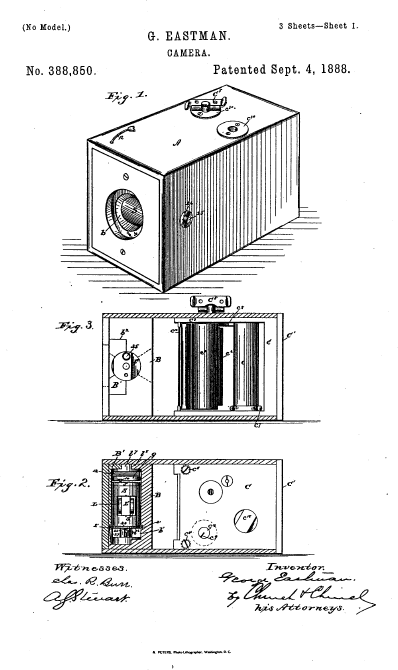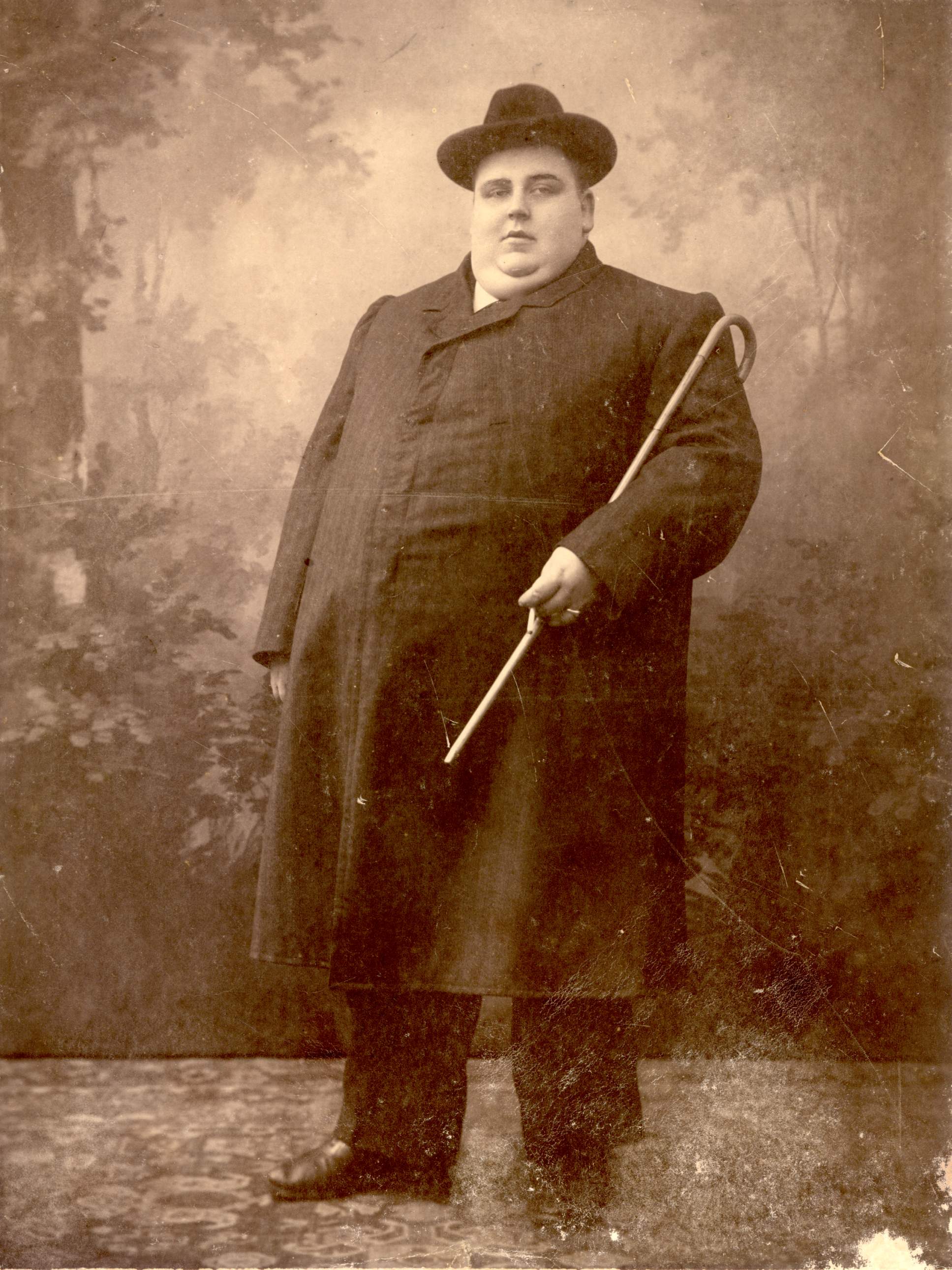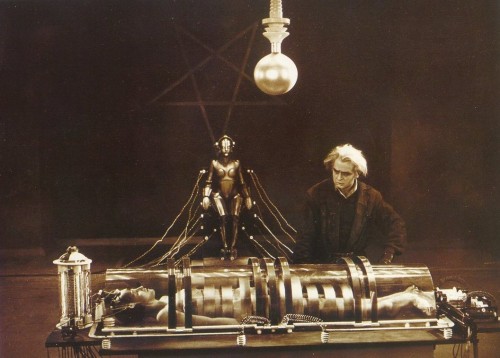A roboticized underground bicycle parking lot. In Japan, of course.
You are currently browsing the archive for the Urban Studies category.
In What’s the Matter with Kansas?, his popular 2005 book about the fall of the Democrats, Thomas Frank explained (bitterly) how his party lost his home state. The subtext was that the Dems needed to win back Kansans–the so-called “heart of America”–if they were to recover on the national stage. What’s happened is more surprising: The Democrats and Kansas have moved further apart than Frank could have foreseen, yet the party roared back anyway. From “Rogue State,” by Mark Binelli in Rolling Stone:
“Once in office, Brownback surprised critics and supporters alike with the fervor of his pursuit of power, pushing what reporter John Gramlich of Stateline described as perhaps ‘the boldest agenda of any governor in the nation‘: gutting spending on social services and education, privatizing the state’s Medicaid system, undermining the teacher’s union, becoming the only state to entirely abolish funding for the arts, boasting that he would sign any anti-abortion bill that crossed his desk, and – most significantly – pushing through the largest package of tax cuts in Kansas history. His avowed goal is to eliminate the state income tax altogether, a move that many predict will torpedo the budget and engender even more draconian cuts in spending. ‘Other Republican-led states have experimented with many of the same changes,’ Gramlich pointed out – the difference in Kansas being that Brownback ‘wants to make all of those changes simultaneously.’
Since Mitt Romney’s resounding defeat last November, much has been made of the supposed battle for the soul of the Republican party taking place at the national level, where pragmatic establishment types are attempting to win over minorities, women and young people by tamping down the most extreme elements of the Tea Party fringe and moderating stances on issues like gay marriage and immigration. The problem is, in places like Kansas (and Louisiana, and South Carolina, and North Dakota), that fringe has become the political mainstream. In fact, while strategists like Karl Rove urge moderation for the GOP, in Kansas, they’ve been taking the opposite tack. Last fall, Brownback and his allies – including the Koch brothers, the right-wing libertarian billionaires whose company Koch Industries is based in Wichita – staged a primary putsch, lavishing funds on hard-right candidates and effectively purging the state Senate of all but a handful of its remaining moderate Republicans. ‘The Senate was really the bulwark of moderation last term,’ says Tom Holland, a Senate Democrat (there are only eight of them left) who ran against Brownback for governor. ‘With the moderate Republican leadership gone, that just got blown away.’
It’s been nearly 10 years since Thomas Frank wrote about the conservative takeover of his home state in What’s the Matter With Kansas? Back then, Kansas still had a Democratic governor in Kathleen Sebelius. But after last fall’s civil war, Kansas has emerged a more intense shade of red than even Frank imagined. The state legislature is the most conservative in the United States, and now there is absolutely nothing stopping the Brownback revolution – one which happens to be entirely at odds with any notion of the GOP adapting to the broader social and demographic changes in the country. If anything, these purists argue, Republicans lost in 2012 because the party wasn’t conservative enough.
No one can say that about Sam Brownback, who is rumored to be mulling his own presidential run in 2016 – and using Kansas as a sort of laboratory, in which ideas cooked up by Koch-funded libertarian think tanks can be released like viruses on live subjects.”
Tags: Mark Binelli, Sam Brownback, Thomas Frank
One thing lost in the NSA scandal is that while government spying on U.S. citizens may be a permanent part of life, the opposite is equally true: our government can never be sure anymore that it’s operating in secrecy. To some extent, we live in public now. Whether it’s Edward Snowden telling us what’s already obvious, or disclosures that mean something, life is more complicated and transparent because of the tech tools we’ve created, because so much information is out there. A tiny part of it may be dangerous–even treason—but the great majority–like Snowden’s, will not. But it will occur, it is a part of the foundation now. You can prosecute this person or make a law to limit that entity, but that’s not going to change anyone’s behavior. The tools are there and so is the will to utilize them, whether we’re talking about government agencies or the average person.
But the ceding of privacy by the average American is about something else–a lack of proportion, the fear of the terrible death by terrorism as opposed to a relatively mundane one. It’s about not wanting to experience a loss of control. An analogy: People in the U.S. fear traveling by airplanes far more than by auto, yet there hasn’t been an air fatality from a major airline in the country in more than four years. Check our highway death statistics during the same time frame. From Conor Friedersdorf in the Atlantic:
“Measured in lives lost, during an interval that includes the biggest terrorist attack in American history, guns posed a threat to American lives that was more than 100 times greater than the threat of terrorism. Over the same interval, drunk driving threatened our safety 50 times more than terrorism.
Those aren’t the only threats many times more deadly than terrorism, either.
The CDC estimates that food poisoning kills roughly 3,000 Americans every year. Every year, food-borne illness takes as many lives in the U.S. as were lost during the high outlier of terrorism deaths. It’s a killer more deadly than terrorism. Should we cede a significant amount of liberty to fight it?
Government officials, much of the media, and most American citizens talk about terrorism as if they’re totally oblivious to this context — as if it is different than all other threats we face, in both kind and degree. Since The Guardian and other news outlets started revealing the scope of the surveillance state last week, numerous commentators and government officials, including President Obama himself, have talked about the need to properly ‘balance’ liberty and security.
The U.S. should certainly try to prevent terrorist attacks, and there is a lot that government can and has done since 9/11 to improve security in ways that are totally unobjectionable. But it is not rational to give up massive amounts of privacy and liberty to stay marginally safer from a threat that, however scary, endangers the average American far less than his or her daily commute.”
Tags: Conor Friedersdorf, Edward Snowden
I don’t think former NSA employee Edward Snowden did anything particularly heroic in leaking documents that told every American what we should already know: We gave our government the power to spy on us, and it’s exercising that authority. Surprisingly enough, polls show most Americans actually approve of such governmental snooping.
But as Amy Davidson pointed out yesterday at the New Yorker blog, David Brooks’ take on Snowden’s actions in his New York Times column is shockingly tone-deaf. The piece’s soft-headed sociology and demeaning character study are perplexing enough, but what’s really outrageous is the idea that Snowden should have felt too indebted to his employers who improved his life materially to speak out about what he felt was wrongdoing.
This part: “He betrayed his employers. Booz Allen and the C.I.A. took a high-school dropout and offered him positions with lavish salaries. He is violating the honor codes of all those who enabled him to rise.”
Yeah, community college slob, know your place. Be grateful to your betters in the U.S. hierarchy. And, yes, you could just as easily apply Brooks’ logic to Gitmo whistleblowers.
Although this paragraph may be worse: “He betrayed the Constitution. The founders did not create the United States so that some solitary 29-year-old could make unilateral decisions about what should be exposed.”
Does Brooks feel the same way about the rights of solitary gun owners? Free speech is messy and inconvenient, but it’s of paramount importance, regardless if we agree with what’s being said or if personally approve of the education and financial standing of the speaker. Disagree vociferously, sure, but don’t preempt disagreement.•
Tags: Amy Davidson, David Brooks, Edward Snowden
From “Kodak’s Problem Child,” Kenny Suleimanagich’s Medium article about how George Eastman’s marvelous company was laid low by its inability to capitalize on its own innovation:
“Chemistry was work that Eastman himself, with one foot still planted in the nineteenth century, well understood. Over the span of about a decade, the Kodak founder invented the first practical roll film and then built the first cameras that could reliably use it. Never again would photography be a cumbersome process, the domain of professionals only.
In his original patent, he wrote that his improvements applied to ‘that class of photographic apparatus known as ‘detective cameras,’’ — concealed and disguised devices, made possible by a new wave of miniaturization, that were used mostly for a lowbrow entertainment: snapping pictures of people unaware. Cameras equipped with single-use chemical plates were hidden in opera glasses, umbrellas, and other everyday objects, and sharing the surreptitious, random, and sometimes compromising photos that resulted became a popular fad.
Eastman, in other words, was obsessively tinkering with what many people at the time would have considered a cheap novelty or a toy. Like Netflix in its early days, Kodak relied on the U.S. Postal Service: Customers sent their spent cameras to Rochester, where the film was removed, processed, and cut into frames; the resulting negatives and prints, along with the camera, reloaded with a fresh roll of film, were returned to the sender. Suddenly it was easy for anyone to take lots of pictures, and Eastman’s new business became a juggernaut almost overnight.
About ninety years later, another tinkerer in Kodak labs would create an integrated circuit that turned light waves into digital images. It too would be labeled a toy by the few people who saw it. It too would eventually launch a huge new business all but overnight. But this time, Kodak wouldn’t be part of it.”
Tags: Kenny Suleimanagich
In his essay for the Atlantic about Silicon Valley politics and tax policy, Kentaro Toyama questions the very limits of meritocracy:
“What’s wrong with a world in which greater intellects hold more power and win greater rewards? At least two things: First, intelligence and productivity are important, but they’re secondary virtues, compared with goodness and sincerity. The road to hell may be paved with good intentions marred by stupidity, but bad intentions backed by brains are hypersonic jet transport to fire and brimstone. The difference was on full display when Cook testified. The Apple CEO is undoubtedly very smart, and on the Senate panel, he revealed a razor sharp social intelligence to boot. Yet, the words that came out of his mouth must rank with ‘we didn’t know tobacco was bad for you’ in their insincerity: ‘We not only comply with the laws, but we comply with the spirit of the laws. We don’t depend on tax gimmicks.’ Really?
The second is that a meritocracy can be just as bad as any other ‘-ocracy’ in reinforcing inequalities unless each generation ensures a fair distribution of merit. Unfortunately, American institutions for nurturing merit — such as its system of formal education — are only becoming less and less egalitarian. Public school funding remains linked to local property taxes, causing cumulative disadvantage; private schooling is becoming the default for rich, ‘meritocratic’ parents, who then care less about what happens in the public system; college is increasingly unaffordable for even the firmly middle class.”
Tags: Kentaro Toyama
From the October 25, 1891 New York Times:
Kalamazoo, Mich.–Three lads named Collins and Pfeiffer have been accused by the Very Rev. Frank A. O’Brien of St. Augustine’s Church of crucifying a cat. The boys will not confess, and their parents, who believe them innocent, have withdrawn them from the parochial school. The boys were playing ‘Ober-Ammergau,’ and nailed the feet of the cat to a cross. The tail, interfering, was cut off, and then nailed on. Mrs. Collins says that she was ordered out of the Deanery because she denied the statement that her son had taken part in the crucifixion. Humane Agent Merrill is investigation the affair.”
Tags: Collins and Pfeiffer Lads, Humane Agent Merrill, Mrs. Collins, Very Rev. Frank A. O'Brien
How To Lose Weight
Eat Pickles 10 calories for a whole pickle and diet soda, water and or Wylers Orange drink (tastes like Tang) slice bread with one slice of cheese and one slice of meat no Mayonaise (200 calories).
Eat up to 5 sandwiches the whole day and as much drink as you want. you can have a little coffee in the morning with milk and sugar. total 1000 calories a day. take a multi vitamin. take a small walk daily.
“In the sun, I feel as one…married…buried,” sang the doomed poet, and we’re not feeling so well ourselves. In the wake of Hurricane Sandy, what isn’t possible? From Dana Rubinstein at Capital, a report about the awful potential of climate change in NYC:
“By the 2050s, the the number of 90-plus degree days could triple, and that could pose risks not only to New Yorkers’ lives, but also to the infrastructure that supports them.
‘Due to the urban heat-island effect, the temperature could be as much as seven degrees higher than it is in areas just around the city,’ said Cas Holloway, Bloomberg’s deputy mayor for operations, who based his remarks on a panel of climate change academics convened by the city.
Images of hazy skies and a straphanger mopping his brow appeared on a screen to his left.
‘It becomes basically like being in an oven beneath the street, and it makes our infrastructure extremely vulnerable.'”
Tags: Cas Holloway, Dana Rubinstein
From “Robot Evolution,” Emily Monosson’s Aeon essay, which concerns the shock of the new and the unpredictable emergent behaviors that can accompany such a thing:
“In a laboratory tucked away in a corner of the Cornell University campus, Hod Lipson’s robots are evolving. He has already produced a self-aware robot that is able to gather information about itself as it learns to walk. Like a Toy Story character, it sits in a cubby surrounded by other former laboratory stars. There’s a set of modular cubes, looking like a cross between children’s blocks and the model cartilage one might see at the orthopaedist’s – this particular contraption enjoyed the spotlight in 2005 as one of the world’s first self-replicating robots. And there are cubbies full of odd-shaped plastic sculptures, including some chess pieces that are products of the lab’s 3D printer.
In 2006, Lipson’s Creative Machines Lab pioneered the Fab@home, a low-cost build-your-own 3D printer, available to anyone with internet access. For around $2,500 and some tech know-how, you could make a desktop machine and begin printing three-dimensional objects: an iPod case made of silicon, flowers from icing, a dolls’ house out of spray-cheese. Within a year, the Fab@home site had received 17 million hits and won a 2007 Breakthrough of the Year award fromPopular Mechanics. But really, the printer was just a side project: it was a way to fabricate all the bits necessary for robotic self-replication. The robots and the 3D printer-pieces populating the cubbies are like fossils tracing the evolutionary history of a new kind of organism. ‘I want to evolve something that is life,’ Lipson told me, ‘out of plastic and wires and inanimate materials.’
Upon first meeting, Lipson comes off like a cross between Seth Rogen and Gene Wilder’s Young Frankenstein (minus the wild blond hair). He exudes a youthful kind of curiosity. You can’t miss his passionate desire to understand what makes life tick. And yet, as he seeks to create a self-assembling, self-aware machine that can walk right out of his laboratory, Lipson is aware of the risks. In the corner of his office is a box of new copies of Out of Control by Kevin Kelly. First published in 1994 when Kelly was executive editor of Wired magazine, the book contemplates the seemingly imminent merging of the biological and technological realms — ‘the born and the made’ — and the inevitable unpredictability of such an event. ‘When someone wants to do a PhD in this lab, I give them this book before they commit,’ Lipson told me. ‘As much as we are control freaks when it comes to engineering, where this is going toward is loss of control. The more we automate, the more we don’t know what’s going to come out of it.’”
Tags: Emily Monosson, Hod Lipson
Former U.S. Military Police Officer Brandon Neely, once a guard at Guantanamo, just did an Ask Me Anything at Reddit about the detention camp. An excerpt follows.
______________________
Question:
Question:
Tags: Brandon Neely
Tags: Andrew McAfee
A wart that grew a man, Morton Downey Jr. was his generation’s Joe Pyne, a fun-house mirror of a media personality, held up to the absolute worst in American culture. His show was a sick and violent sideshow but mostly a con, save the host’s outrage, which was real and came from some unknown personal wounds.
Every generation gets the Joe Pyne they deserve, and in our time it’s Alex Jones, who doesn’t offer carnival-ish physical violence from inside a confined studio but something worse: scary conspiracy theories, threats of violence and utter hatred sent out to the like-minded. It’s not a purging but a rallying cry.
It makes sense that as most of the culture improves and progresses, that a stubborn strain of it gets worse, becomes a raging illness.
Tags: Morton Downey Jr.
To follow up on what I posted earlier about the age of surveillance:
Let’s say it becomes obvious that quite a few major-league baseball players are using performance-enhancing drugs. Fans are outraged. They’re cheating, threatening the integrity of the game. But what if safe performance-enhancing drugs gradually become available to the general public. The average person can become stronger and healthier by taking such supplements. The fans themselves are “juiced,” so to speak, sitting in the stands. Would we be able to hold athletes to a standard that the rest of society isn’t held to?
Now consider this scenario: One part of our nation is conducting deep surveillance of citizens. People are outraged. They’re intruding, threatening our liberties. But what if such surveillance gradually became widespread in every other part of society? What if corporations, government, hackers and the average citizen were all doing it? What if new tools made it common? Would we be able to hold any single aspect of society (government, say) to a standard that the rest of society isn’t held to?
Whether we like it or not, once a thing become pervasive, it is tacitly accepted. Fighting it becomes as ridiculous as any other prohibition that runs counter to mass activity. We realize that the thing we supposedly fear is now the new normal.•

“Those of the neighbors who had young sons and daughters set about to rid the village of the evangelist and his followers.”
A charismatic if questionable vegetarian cult leader with an oddly spelled surname descended upon a New Jersey town toward the end of the 19th century and general oddness and attempted fraud ensued. From the April 25, 1893 New York Times:
“Hackensack, N.J.–Nine religious fanatics were taken to the Hackensack (N.J.) jail this afternoon and placed in charge of Sheriff Albert Bogert.
The leader is Hunstman T. Mnason, the well-known evangelist, who has been in jail before, once for enticing two young girls to leave their homes and join his religious band.
Four years ago Mnason settled in Park Ridge on the New-Jersey and New-York Railroad, and at once set about to form a band to praise God in his own peculiar way.
He became acquainted with the family of Herman Storms, a rich farmer, whose property is valued at $10,000. The farmer did not like the new arrival, but the new religious habits were forcibly impressed upon Mrs. Maria Storms, her son Garry, and daughter Mary, both past their teens. Jane Howell, Mrs. Minnie Stewart, and Eliza Berry were also induced to join the band.
 Lately the band was increased by two long-haired men, who called themselves ‘Silas’ and ‘John the Baptist.’ The neighbors noticed that the newcomers worked on Sunday, and about twice a month held what was called an ‘angel dance.’ All were scantily robed and waved a huge blanket with which to drive away the devil.
Lately the band was increased by two long-haired men, who called themselves ‘Silas’ and ‘John the Baptist.’ The neighbors noticed that the newcomers worked on Sunday, and about twice a month held what was called an ‘angel dance.’ All were scantily robed and waved a huge blanket with which to drive away the devil.
Those of the neighbors who had young sons and daughters set about to rid the village of the evangelist and his followers.
A short time ago three of them were arrested for working on Sunday, and two served four days in the Hackensack jail for the offense.
To-day the whole band was arrested, charged with conspiring to cheat and defraud Herman Storms out of his property. The agreement had been drawn up by which Garry Storms was to have the property and the elder Storms should receive $100 and board and clothing for the remainder of his days. All were to meet in Justice W.B. Smith’s office at Park Ridge this afternoon, and witness the signature to the agreement, but they were all placed under arrest and got a hearing immediately afterward.
The affadavit, in part, states:
‘The conspirators, deny, ridicule, and curse all regular religion and religious customs, recognize no Sabbath, and set up a false god of their own, declaring the said Mnason to be the only true and living God, in consequence of which the household of Herman Storms has been put under a petty and grinding despotism, under the dogmatic rule of Huntsman T. Mnason, aided and abetted by his said co-conspirators, wherein unseemly revelry often occurs and disorder reigns, and the laws of society, religion, and State are defied and reviled, to the scandal of the neighborhood and great injury to public morals.’
Several testified against the evangelists at the hearing before Justices Smith and Wortendyke.
Herman Storms testified that Mnason refused to have meat in the house and also refused to allow him the use of his own wagons and horses. The witness gave a vivid sketch of the angel dance.
He said that Mnason ordered the women to get up on the breakfast table and dance around the eatables before food was partaken. Though the property was to be transferred to Garry, Mrs. Storms’s son, it was generally believed that Mnason would soon have secured control and ownership of it.”
Tags: "John the Baptist", "Silas", Eliza Berry, Garry Storms, Herman Storms, Hunstman T. Mnason, Jane Howell, Justice Smith, Justice Wortendyke, Mary Storms, Mrs. Maria Storms, Mrs. Minnie Stewart, Sheriff Albert Bogert, W.B. Smith
Part of an 1969 interview David Frost conducted with Truman Capote, who was already four years into a long decline, having published his masterpiece, In Cold Blood, in 1965, after a long struggle, with cycles of celebrity, scandal, addiction and rehab awaiting him. When I was a small child, I was taking a bus trip with my parents from the Port Authority, and we saw Capote seated on the benches, wearing a big straw hat, wasted out of his mind. He was trying to get a homeless woman to talk to him. She had no interest.
Tags: David Frost, Truman Capote
From the New York Times, a look back at 1991’s Biosphere 2, that boondoggle, which was supposed to be an air-tight test run for space colonization. It ended up being something less.
Americans have apparently realized in just the last few days that the Patriot Act combined with tons of our information online means that spying is easier than ever–and probably legal. Hopefully, we’re a little more aware that 3D printers, with all the great things they can do, will also lead to some problems. Staples begins selling one this month. From Singularity Hub: “The latest sign of the 3D printer home invasion? Retail office supply chain, Staples, says they’ll sell the 3D Systems Cube 3D Printer online and in retail stores by the end of June.
The $1,300 Cube connects to your home PC over Wi-Fi, allowing it to access and print 3D digital templates in plastic. The printer can print shapes that fit inside a cube 5.5″ to a side. Printing cartridges come in 16 colors which, along with other accessories, may also be purchased at Staples.”
Two of the more perplexing entities in existence, Vice magazine and Sen. Rand Paul, met for a brief interview. The reporter, Grace Wyler, did a good job. An excerpt:
“Vice:
What do you think about the Obama administration’s decision to support the FBI’s push to make it easier to spy on the Internet?
Sen. Rand Paul:
My reaction is mostly disappointment. The one area where I liked President Obama was that I thought he would defend civil liberties. It turns out that he might care less for civil liberties than George Bush, and I think that’s disappointing.
It must be truly disappointing for those who truly are progressive on the left who believe in civil liberties, and it’s disappointing to those of us on the right who didn’t support him but thought, ‘Gosh, well, at least maybe he’ll support civil liberties.’
Vice:
It all seems kind of dystopian. Speaking of which, I hear you want to teach a class on the dystopian novel?
Sen. Rand Paul:
I’ve talked about it, but unfortunately I keep developing other projects that get in the way. I would like to do it someday. I think dystopian novels are a discussion of politics, and sort of what happens if you let a government accumulate too much power.
As I said in my filibuster, this presidential, or king, complex that both Republicans and Democrats get where they think, ‘Well, the power is not so bad, because I’m a good person and I won’t abuse that power.’ President Obama has said that with indefinite detention, he’s said ‘Oh, well I don’t intend to use that power.’ That’s not good enough, it’s like when Madison said: ‘If government were comprised of angels, we wouldn’t have to worry about how much power to give the government.’
The government is not comprised of angels. No one can be trusted. I think it was either Madison or Jefferson who said to always worry about any power you give to your government, because there should always be a certain level of distrust for anyone who seeks power. “
Tags: Grace Wyler, Rand Paul
SEEKING FEMALE WHO BUYS AND SELLS ON THE INTERNET (QUEENS)
or goes to flea markets etc. i am in need of someone who can help me out about once or twice a month with the following:
- administer an enema and a full body deep tissue massage.
in exchange for these services i will swap various things that you can sell. this will be a permanent situation and i have quite a bit of things. each visit you can pick a certain amount of things to sell. the 2 treatments take about 3 hours. if interested please leave contact info. thank you kindly.
I’m not a defeatist about all the problems of our world. I think, for instance, income inequality can be remedied, and we can achieve social progress in a number of areas. The demographics are on our side. But I’m not an optimist when it comes to controlling guns or ensuring privacy, areas where technology makes limitation almost impossible.
I’ve talked about guns before, so I’ll discuss privacy today.
Gawker‘s Hamilton Nolan always makes lots of good points in his posts. His latest, a piece about the surveillance state we find ourselves in, is no exception. We’re now a place where government, media and the odd hacker can watch us, can learn what we’re thinking. Nolan’s contention is that we can stop these intrusions. I don’t think that’s true.
9/11 and the Patriot Act hastened this world, made for an excellent excuse for its installation, but it was going to happen anyway. There are two reasons for that.
First of all, no one ever builds tools to not use them, and they only get cheaper and easier to use. Drones were the size of planes and then birds and soon fleas. Cameras are in our pockets–in our glasses–let alone attached to our streetlamps. We drop data everywhere we go–even when we’re sitting still. And a decentralized media is in everyone’s hands, which means many great things can happen but also that a virtual anarchy rules. And this new normal is already such a bedrock of our society that I don’t think it would be possible to turn back even if we wanted to.
And I don’t think we really want to.
That brings me to the second reason: People really, really want attention at any cost. It makes them feel appreciated and safe. I’ve been constantly surprised by the extent of this. Social networks and other information-extracting services are a reflection of our desire to be connected, to feel important. We’ve traded so much for it already, namely our privacy, because, we want to be noticed, we want to be watched over. It’s a scary world and everyone wants a brother, even if it’s Big Brother.
Perhaps that will change when a government overreach causes a scandal that has a very human face. But I doubt it. The widespread News Corp wrongdoing, with the face of a murdered child attached to it, hasn’t changed much. I think privacy as we knew it, from governmental or other intrusion, is over, like it or not.
The opening of Nolan’s post:
“Ever since 9/11, the American government has been busily constructing the most comprehensive surveillance state in this country’s history. This vast and invasive bureaucracy is too big to hide, but the public has done its part by politely ignoring it. No longer. Now is when we, the people, choose whether or not we will accept the end of privacy as we know it. If history is any indication, we will.
In the immediate aftermath of 9/11, the public’s consent was explicit: Do Whatever It Takes. As passions faded and the ‘War on Terror’ morphed into a quasi-permanent state of being, our consent became implicit. The public never asked for the surveillance state to stop. Over the past decade, journalists have periodically revealed details of the breadth of our government’s spying mechanism: the Washington Post the breathtaking size of the secret intelligence-industrial complex; Jane Mayer NSA whistleblowers who said that the agency was vacuuming up email and phone records from all Americans. These stories, meticulous though they were, made only a temporary splash. This week’s stories are different.
Over the past two days, two incredibly important stories about the U.S. government’s spying capabilities broke one after another. First, the story that the NSA is collecting the phone records of all Verizon Business Services customers—which may well include all Verizon users—on a daily, ongoing basis; and then, yesterday, the existence of the PRISM program, in which the NSA and the FBI tap directly into the data streams of the world’s biggest internet companies, allowing it to pull out virtually any and all communications data, allowing them to ‘watch your ideas form as you type.’ (The vague denials of the various internet companies likely hinge on the technical mechanisms of their cooperation, rather than on the existence of their cooperation itself.)
The great omniscient government spy looking over your shoulder is real. This is the type of spying program that makes conspiracy theorists sound mild in comparison. Even in the context of the wholesale erosion of the very concept of ‘civil liberties’ since 9/11, this is sobering stuff. We have consented, without our knowledge, to giving faceless, unaccountable government representatives access to everything we say and do.”
Tags: Hamilton Nolan
When you’re gambling large sums of money in a boom-or-bust business, the sky is always falling, and despite gigantic grosses, Hollywood has never looked more at its chandelier like a concussion-in-waiting. Today, technology can’t be controlled and global markets are now the dog pulling the leash. The cultural concerns go beyond film itself: If we have only blockbusters borne of comic books, what sort of ramifications does that have on the culture?
But those concerns are not unique to our time. The New York Review of Books just republished Gore Vidal’s epic two-part 1973 article, “The Ashes of Hollywood” (Pt. 1 + Pt. 2), which examined the effect Tinseltown’s so-called Golden Age had on the literature written by those weaned on it.
Vidal could not have foreseen parts of TV becoming so literate and personal as film grew into something behemoth and post-literate. Of course, Vidal probably would have had little kindness for contemporary television, either. He hated everything that wasn’t him or didn’t flatter him. The article’s opening:
“‘Shit has its own integrity.’ The Wise Hack at the Writers’ Table in the MGM commissary used regularly to affirm this axiom for the benefit of us alien integers from the world of Quality Lit. It was plain to him (if not to the front office) that since we had come to Hollywood only to make money, our pictures would entirely lack the one basic homely ingredient that spells boffo world-wide grosses. The Wise Hack was not far wrong. He knew that the sort of exuberant badness which so often achieves perfect popularity cannot be faked even though, as he was quick to admit, no one ever lost a penny underestimating the intelligence of the American public. He was cynical (so were we); yet he also truly believed that children in jeopardy always hooked an audience, that Lana Turner was convincing when she rejected the advances of Edmund Purdom in The Prodigal ‘because I’m a priestess of Baal,’ and he thought that Irving Thalberg was a genius of Leonardo proportion because he had made such tasteful ‘products’ as The Barretts of Wimpole Street and’ Marie Antoinette.
In my day at the Writers’ Table (mid-Fifties) television had shaken the industry and the shit-dispensers could now…well, flush their products into every home without having to worry about booking a theater. In desperation, the front office started hiring alien integers whose lack of reverence for the industry distressed the Wise Hack who daily lectured us as we sat at our long table eating the specialty of the studio, top-billed as the Louis B. Mayer Chicken Soup with Matzoh Balls (yes, invariably, the dumb starlet would ask, what do they do with the rest of the matzoh?). Christopher Isherwood and I sat on one side of the table; John O’Hara on the other. Aldous Huxley worked at home. Dorothy Parker drank at home.
The last time I saw her, Los Angeles had been on fire for three days. As I took a taxi from the studio, I asked the driver, ‘How’s the fire doing?’ ‘You mean,’ said the Hollywoodian, ‘the holocaust.’ The style, you see, must come as easily and naturally as that. I found Dorothy standing in front of her house, gazing at the smoky sky; in one hand she held a drink, in the other a comb which absently she was passing through her short straight hair. As I came toward her, she gave me a secret smile. ‘I am combing,’ she whispered, ‘Los Angeles out of my hair.’ But of course that was not possible. The ashes of Hollywood are still very much in our hair, as the ten bestsellers I have just read demonstrate.
The bad movies we made twenty years ago are now regarded in altogether too many circles as important aspects of what the new illiterates want to believe is the only significant art form of the twentieth century. An entire generation has been brought up to admire the product of that era. Like so many dinosaur droppings, the old Hollywood films have petrified into something rich, strange, numinous-golden. For any survivor of the Writers’ Table (alien or indigenous integer), it is astonishing to find young directors like Bertolucci, Bogdanovich, Truffaut reverently repeating or echoing or paying homage to the sort of kitsch we created first time around with a good deal of ‘help’ from our producers and practically none at all from the directors—if one may quickly set aside the myth of the director as auteur. Golden age movies were the work of producer(s) and writer(s). The director was given a finished shooting script with each shot clearly marked, and woe to him if he changed MED CLOSE SHOT to MED SHOT without permission from the front office, which each evening, in serried ranks, watched the day’s rushes with script in hand (‘We’ve got some good pages today,’ they would say; never good film). The director, as the Wise Hack liked to observe, is the brother-in-law.'”
Tags: Gore Vidal
The Swiss-headquartered ABB Group has created the first electric-bus system that doesn’t require overhead power lines, being able to “flash charge” in 15 seconds when it pulls into stops. From the company’s release:
“The new boost charging technology will be deployed for the first time on a large capacity electric bus, carrying as many as 135 passengers. The bus will be charged directly at selected stops with a 15-second energy boost while the passengers enter and leave the bus, based on a new type of automatic flash-charging mechanism. The pilot project runs between Geneva airport and the city’s international exhibition center, Palexpo.
‘Through flash charging, we are able to pilot a new generation of electric buses for urban mass transport that no longer relies on overhead lines,’ said Claes Rytoft, ABB’s acting Chief Technology Officer. ‘This project will pave the way for switching to more flexible, cost-effective, public transport infrastructure while reducing pollution and noise.'”
From the August 5, 1899 New York Times:
“Mount Holly, N.J.–Frederick W. Pope, the fourteen-year-old son of Charles A. Pope of Columbus, is paralyzed hopelessly as a result of an application of cocaine by a dentist, and has lost the power of speech. Seven weeks ago the lad suffered from a severe toothache and went to a dentist to have the tooth extracted. It was necessary because of the lad’s nervous condition for the dentist to administer some drug. He used cocaine to relieve the pain.
A short time after the tooth was pulled paralysis set in on the right side of the body. It was thought by the physicians that the attack would pass away and leave the lad unharmed. Yesterday the boy was stricken speechless. Several physicians have examined him, and all agree that the case is a hopeless one. The general opinion is that the cocaine went to the brain.”
Tags: Charles A. Pope, Frederick W. Pope
I’ve mentioned Russian billionaire Dmitry Itskov a couple of times, including yesterday. He wants to defeat death, in a sense, by 2045. The plan is to upload a person’t brain information into a computer so that their consciousness can be digitized and preserved. You will be a hologram, you will be an avatar–and you will be lovely. He just did an Ask Me Anything on Reddit. A few exchanges follow.
________________________
Question:
Can you explain in layman’s terms how you are planning to achieve said immortality?
Dmitry Itskov:
No one can say for sure at this point what our “end product” would look like.In the life extension community, we use a saying “a bridge to a bridge” to help explain what we’re trying to do.
We may not develop “immortality technology” in time for those alive today, or those past a certain age. What we might develop is a “20 year pill,” which would be a technology that would give an 85 year old an almost guaranteed 20 more years. At the end of that 20 years, we may have a “50” year pill, because the technology has improved in that 20 years. By the time that 50 year pill has run it’s course, we might have the 1,000 year pill.
What we’re trying to do is create technologies enabling the transfer of a individual’s personality to a more advanced non-biological carrier, and extending life, including to the point of immortality.
Basically, we’re taking the part of the brain that makes somebody “who they are”- memories, feelings, etc, and putting them in something that will last much longer than the human body. The initial stages of such technology will be similar to a brain transplant, where the physical brain is supported by some physical means. Eventually, we may progress to uploading one’s brain like a computer program, where it can exist forever. Think of this like uploading your consciousness or “soul” to something that will last thousands, millions, or even an indefinite years.
Tags: Dmitry Itskov


























